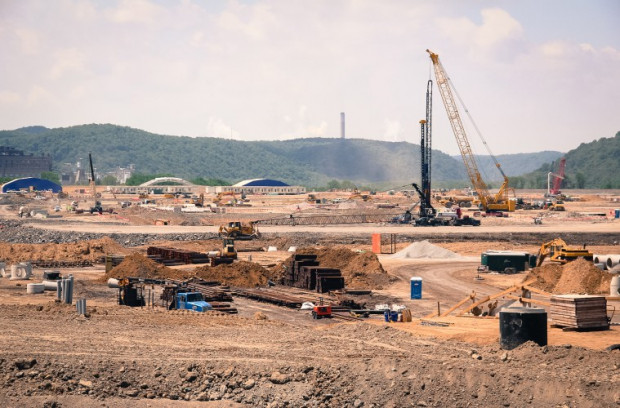Shell, environmental groups reach deal on air monitoring for ethane cracker
-
Marie Cusick
Shell Chemical Appalachia has reached a settlement agreement with two environmental groups that had challenged the air permit for its new petrochemical plant being built near Pittsburgh.
The deal follows more than two years of negotiations and requires Shell to do more air quality monitoring, including installing fenceline monitoring, which can quickly detect emission spikes. It also places more stringent requirements on flaring, in order to burn off pollutants.
“We are pleased to have reached this settlement,” Ate Visser, Vice President of the Shell project, said in a statement. “Now our full focus will be on delivering the facility, with its state of the art operations and environmental controls, which will bring jobs and economic benefits to many Western Pennsylvania families for decades to come.”
Attorney Joseph Minott of the Clean Air Council, says the technology will make Shell’s workers and the community safer.
“I think this is a very good model for what communities should insist what all large air pollution sources now have,” he says. “The technology exists, the cost is reasonable, and the level of protection it provides is well worth it. Anyone who lives next to a facility like that will be exposed to elevated levels of hazardous air pollutants.”
Shell’s plant, known as an ethane cracker, breaks up ethane, which is a natural gas liquid from the Marcellus Shale, and turns it into material used to make plastics. It is being built in Potter Township, Beaver County, about 30 miles northwest of Pittsburgh.
“Our appeal of the air permit for the Shell facility sought to address two main pieces the permit was lacking: fenceline monitoring to detect and fix leaks and better requirements to assure the facility’s flares properly control air pollution,” Adam Kron, senior attorney for the Environmental Integrity Project, said in a statement. “This settlement achieves both of these goals, and we believe the health of people living and working near this facility will be better protected as a result.”

















